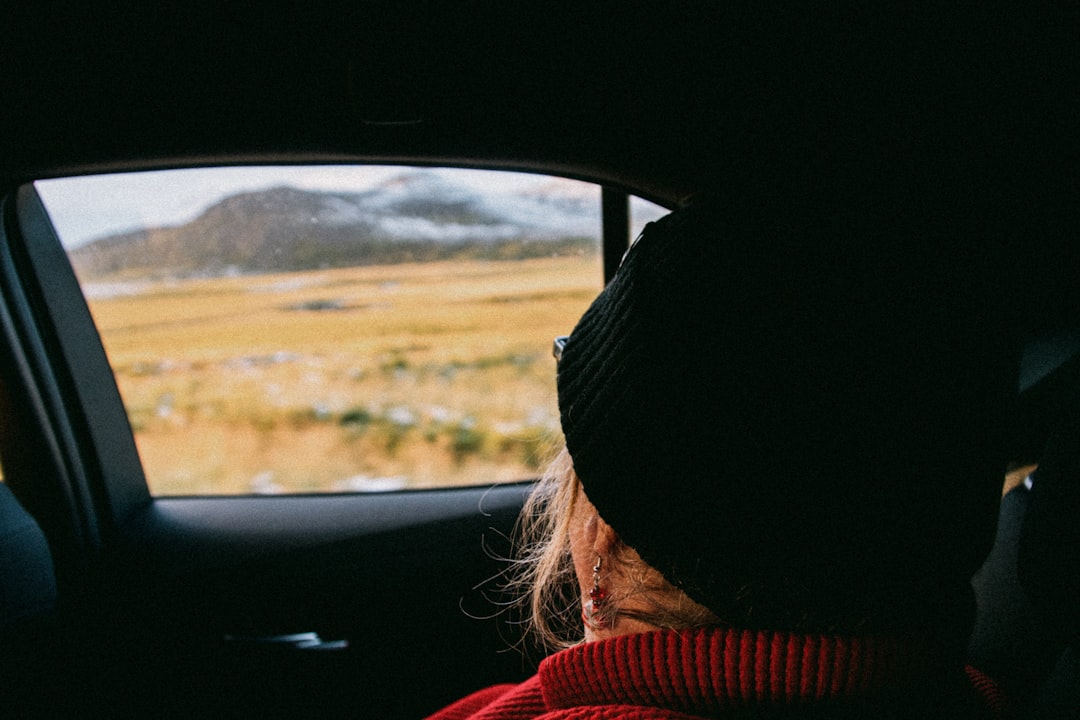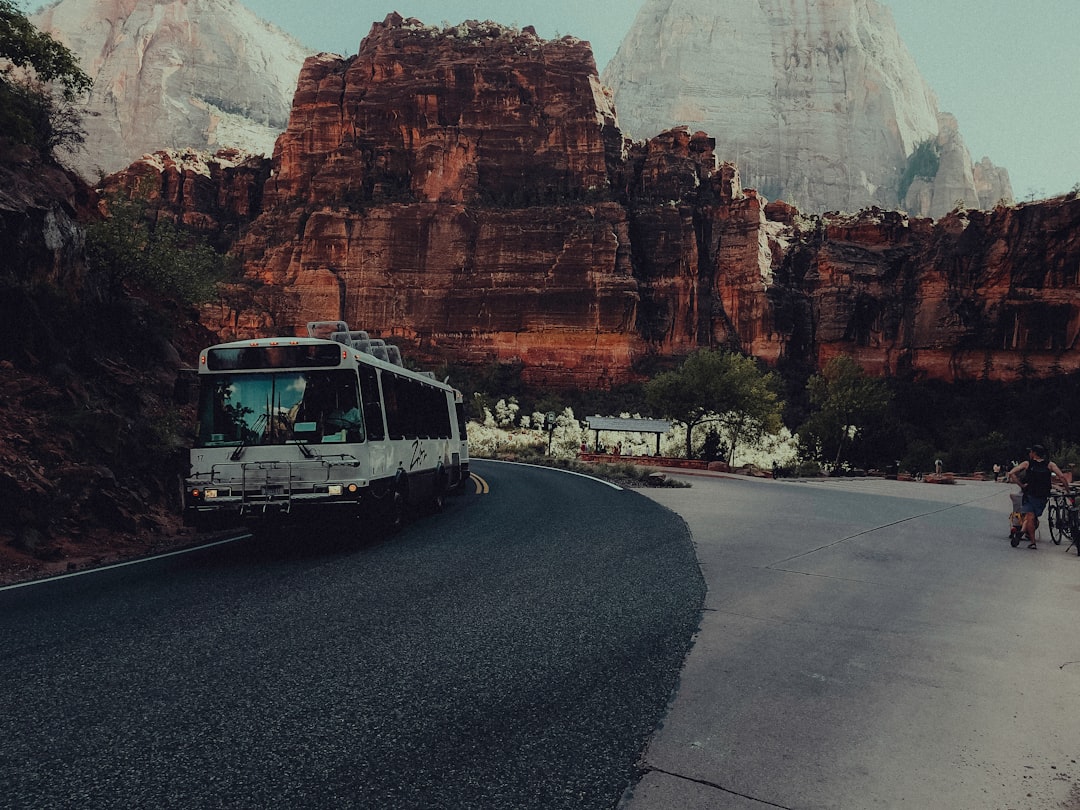True Travel Stories Beyond Influencer Poses
True Travel Stories Beyond Influencer Poses - Deconstructing the Aspirational Travel Blueprint
The ongoing conversation around the "Aspirational Travel Blueprint" continues to evolve, pushing beyond mere critique of polished facades. As we approach mid-2025, there's a discernible shift, not just in identifying the artifice of influencer-led narratives but in actively seeking alternatives. The initial recognition of travel as a performance, driven by the hunt for the 'perfect' social media capture, is now giving way to a more nuanced exploration of *why* this blueprint persists and *how* individuals can truly disconnect from its demands. What's becoming increasingly clear is the collective weariness with the relentless pursuit of online validation, prompting a deeper dive into fostering genuine travel identities that resist the pervasive urge to package every moment for public consumption. This emerging focus is less about simply calling out fakery and more about empowering a return to individual agency, redefining what constitutes a meaningful journey away from the ever-present digital lens.
Observations from various data points reveal intriguing dynamics within the aspirational travel paradigm:
1. Studies of cognitive resource allocation indicate that the sustained effort to acquire an ideal visual artifact for online sharing often correlates with a marked reduction in the brain's processing and retention of non-visual sensory inputs and environmental context during a travel experience.
2. The intermittent reinforcement schedule of "likes" and commentary associated with online travel posts appears to activate specific neurochemical reward pathways, effectively programming a feedback loop that prioritizes external validation metrics over the direct, unmediated enjoyment of a location.
3. Consistent exposure to highly filtered and digitally amplified travel imagery can lead to a measurable recalibration of the brain's novelty response, potentially diminishing the visceral and genuine emotional engagement derived from unfiltered, real-world travel encounters.
4. The deliberate act of curating a perception of "authenticity" for an online audience, common in aspirational travel narratives, frequently triggers elevated states of self-monitoring, thereby impeding spontaneous interaction with surroundings and increasing overall cognitive processing demands.
5. A prevalent cognitive heuristic, often termed the "framing effect," typically biases an aspirational traveler's focus towards the immediate aesthetic potential of a photographic moment, inadvertently downplaying or omitting the systemic considerations of ecological strain or local community impact associated with popular photo points.
True Travel Stories Beyond Influencer Poses - The Quest for Unstaged Moments and Genuine Encounters
Instead of simply being an abstract ideal, the pursuit of truly unscripted travel experiences and authentic human connections has solidified into a palpable movement as we move through 2025. This isn't merely about turning off a phone or avoiding a selfie stick; it's an evolving, often challenging, internal negotiation for travelers. What's increasingly apparent is the recognition that 'genuine' isn't just about what's presented to the outside world, but about an inner state of openness that allows for the unexpected to unfold. The very definition of discovery is being recalibrated, shifting from the unveiling of a pristine, untouched scene to the deeper engagement with reality, flaws and all. This new phase of the quest involves a more deliberate shedding of expectations derived from idealized online portrayals, paving the way for personal stories rooted in the messy, unfiltered truth of exploration.
Despite the persistent allure of perfectly composed travel imagery, recent analyses reveal some less apparent implications arising from the pursuit of such "unstaged" moments and true engagements. Drawing from ongoing research and observation, here are some insights into the practical and psychological effects emerging as of mid-2025:
Investigations into neural mechanisms suggest that the continuous effort to frame and capture travel experiences visually can subtly reconfigure long-term memory formation. This appears to favor a more superficial, visually anchored recall over the deep, rich episodic memory of lived, personal experiences, potentially lessening the autobiographical resonance of a journey.
A review of longitudinal studies, with findings emerging in late 2024, indicates a notable statistical link between the perceived necessity to construct idealized online travel narratives and increased reports of both anticipatory anxiety before trips and a general sense of disappointment upon return. This suggests a significant mental overhead associated with the aspirational travel archetype.
Further neuroimaging studies confirm that while digital validation from social media engagement can indeed trigger general reward circuits, it consistently falls short of generating the specific neurochemical responses, such as oxytocin release, or the empathetic mirroring typically associated with authentic, unmediated in-person social interactions encountered during travel.
Updated economic modeling from early 2025 highlights a pattern where travel hotspots popularized by influential digital personas often disproportionately channel revenue towards larger, frequently multinational, hospitality entities. This economic funneling often bypasses and thus offers less direct benefit to smaller, locally owned enterprises and grassroots community-based tourism initiatives.
Empirical studies using eye-tracking technology and direct behavioral observation demonstrate that individuals primarily focused on securing photographic opportunities during their travels often spend less time in sustained contemplation of their surroundings. Their gaze patterns tend to be briefer and more directed, potentially limiting spontaneous discovery and deeper, unstructured engagement with environmental nuances.
True Travel Stories Beyond Influencer Poses - Beyond the Tripod Selfie A Shift in Perspective
As we delve into "Beyond the Tripod Selfie: A Shift in Perspective" in mid-2025, what's new isn't just the critique of highly staged travel photography, but a discernible, active reorientation by travelers themselves. This shift represents a growing intent to move past the performative act of documentation, opting instead for a more authentic and less mediated engagement with their journeys. It's about a fundamental rethinking of what constitutes a valuable travel memory, moving away from external validation and towards an internal sense of genuine experience, often leading to a deliberate disengagement from the lens-first approach to exploration.
Observations from late 2024, delving into cognitive pathways, highlight that deliberate detachment from the goal of capturing every vista photographically correlates with a measurable uplift in a traveler’s capacity to absorb, integrate, and internally model the diverse sensory fabric of a location, fostering a profound sense of 'being there' rather than merely observing. Further investigations into autobiographical memory, active as of early 2025, suggest a compelling correlation: individuals prioritizing an unmediated engagement with their surroundings—privileging sensory input beyond the visual and fostering internal contemplative states over exhaustive photo archiving—tend to construct memory landscapes that are strikingly more vivid, emotionally charged, and personally significant, resisting the often-fragmented recollection of purely visual capture.
From a psychophysiological standpoint, mid-2025 findings are shedding light on direct somatic benefits. Periods spent navigating new environments with a deliberate disengagement from digital documentation exhibit a statistically significant association with reductions in physiological stress markers, notably basal cortisol, and improvements in reported sleep quality, pointing to tangible neural and systemic calming effects that transcend mere mental relaxation. Observational research conducted throughout 2024 at frequently visited locales offers compelling behavioral insights: when the primary objective of real-time digital content creation is consciously reduced, a noticeable proliferation of more extended, nuanced, and mutually rewarding interactions between visitors and local populations emerges. This shift not only deepens the potential for authentic cross-cultural exchange but also cultivates a sense of shared human experience often absent when the interaction is primarily mediated by the lens of a device. Finally, survey data collected in early 2025 consistently points to an evolving internal calibration of 'travel success' amongst a growing cohort of individuals. For those consciously moving beyond the immediate gratification of digital metrics, success is increasingly articulated through deeply personal, qualitative measures: the indelible emotional resonance with a landscape or community, the felt sense of personal expansion or unforeseen discovery, and the profound value ascribed to serendipitous encounters that defy pre-planning or photographic framing.
True Travel Stories Beyond Influencer Poses - Cultivating Shared Narratives Through Lived Experience
As of mid-2025, a significant evolution is observable in how travel stories are perceived and exchanged. While the pursuit of personal, unfiltered experiences has been gaining momentum, what's increasingly apparent is the burgeoning collective desire to truly share these often-imperfect, deeply lived narratives beyond private circles. This isn't solely about an individual traveler finding authenticity; it's about an emerging recognition within broader communities that the most resonant travel tales are those stripped of performance and polished artifice. There's a palpable shift towards valuing vulnerability and unexpected discovery in storytelling, encouraging a shared space where the raw truth of exploration, its challenges, and its quiet triumphs, takes precedence over visual perfection or public acclaim. This evolving landscape fosters a deeper empathy among listeners and storytellers alike, recognizing that the richness of a journey often lies in its unvarnished recounting, moving further away from curated ideals towards communal understanding.
As we delve into "Cultivating Shared Narratives Through Lived Experience," a closer analytical examination reveals profound benefits and intriguing dynamics arising from this practice.
The act of synthesizing diverse sensory data collected during travel, distinct from mere visual recording, appears to reinforce cognitive architectures involved in autobiographical memory construction. This post-experiential internal processing, rather than immediate digital output, contributes to a more integrated personal identity model over the long term.
Analysis of dyadic communication patterns indicates that the reciprocal exchange of personal travel accounts, when grounded in direct and unfiltered sensory encounters, elicits heightened neural coupling between individuals. This appears correlated with an observed increase in affiliative neuro-peptides, signifying a more profound establishment of social rapport compared to passive engagement with curated digital narratives.
Experiential engagement with unfamiliar contexts, unconstrained by pre-conditioned visual heuristics, facilitates a measurable recalibration of internal cognitive models. This continuous update of mental frameworks, driven by novel and unexpected data inputs, demonstrably enhances divergent thinking capacities and supports the development of more robust adaptive behavioral strategies.
The iterative construction of personal narratives rooted in raw, unmediated travel observations appears to fortify the brain's capacity for "episodic simulation" – the mental construction of future possibilities. This relies on an internally generated, rather than externally prescribed, database of real-world complexity, thereby improving an individual's strategic foresight and preparedness for unforeseen circumstances.
Empirical data suggests that the conscious articulation and dissemination of travel experiences, when originating from genuine, unvarnished encounter rather than performative pre-visualizations, correlates with a statistically significant decrease in dispositional social comparative tendencies. This internal locus of evaluation appears to cultivate heightened levels of self-congruence and adaptive psychological robustness.
More Posts from itraveledthere.io:
- →Sarajevo Adventures Or AI Doubles The New Dating Profile Reality
- →Seven Days Car Free in Albania What the Selfies Dont Show
- →Stunning Solo Travel Selfies Practical Tips for Online Profiles
- →Trending Midwestern City Offers Epic Selfie Spots
- →7 Essential Selfie Spots Along Peru's Ancient Inca Trail A Photographer's Guide to Capturing Sacred Sites in 2025
- →Decoding the Elevated Travel Selfie Trend

